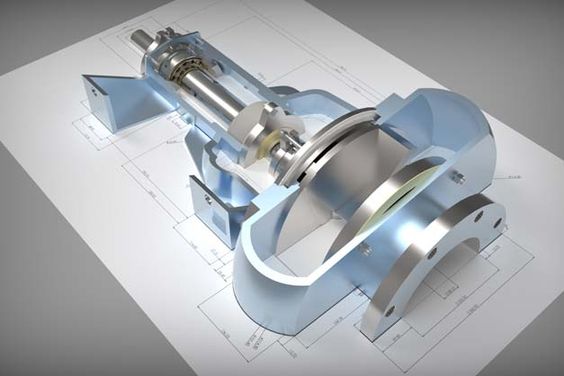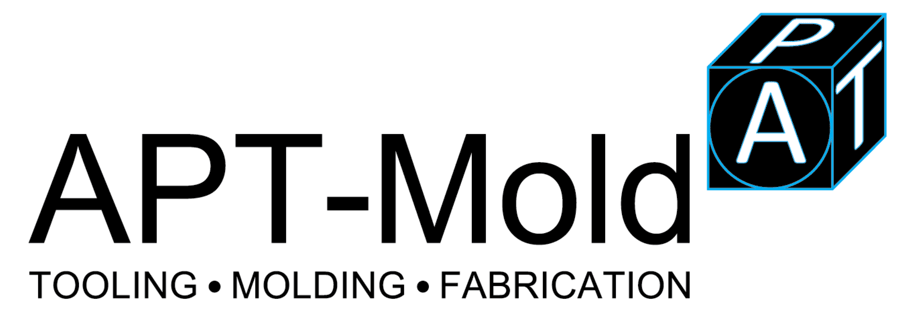Rapid prototyping services have one thing in common: all of them require computer software to work properly. The problem is that there are a lot of rapid prototyping programs in the market. How can we choose the right one? This is where issues begin to rear their heads. Most developers are driven to pick customary software from a big company. They are sold a bill of goods that sometimes works for the best, other times it doesn’t. Even with all the flashy options, picking a brand over every other option will be trouble in the long run. Mostly because of confusing terms of use and the inflexible controls.

Rapid prototyping CAD, *picture from disruptive-innovation.co.uk
To choose the right software, some hard questions must be asked. You need to go beyond the functionality and features of the software and consider more factors that could influence your design. One of the best ways to begin is by asking yourself how easy or difficult to handle this prototype software? Does it meet the design needs of the company? Can it meet the interests and needs of the floor team? Following that reasoning, we have created a quick list of the things you need to notice on manufacturing software. Pay attention to the following list:
- It needs to be quick: you should be able to create a prototype in a competitive timetable since this affects the ease-of-use of the software.
- It should be user-friendly: Anyone with basic training should be able to achieve something with the software even on a meager interaction.
- It should be easier to handle collaboration: since you will need more than a set of eyes to handle any task, everyone should be able to understand what you are doing firsthand.
- It’s usable: you are able to achieve what the program is meant to do in a single sitting.
- It delivers: you can get a prototype made looking closely to the final product, including most details, features, and functionality if needed.
When it comes to these traits, we can’t let our mind wander over the graphical aspect of the software. That is probably the least important trait on the bottom of the list. An RPP program needs to improve work efficiency. It also has to allow technicians to handle changes based on client requests with ease. Based on all these traits, these are the most useful software you can get for your rapid prototyping services to get the job done:
· Axure RP
Axure is probably the most experienced player on the list. They have some of the most reliable prototype software to work out details on product features. Their brand is an influence bit itself. It also has one of the best supports, even with the updated and overtly responsive design of the program in their latest versions. You get to handle almost everything you need on any project. From auto website output to auto specification file, diagram, interactive design, website map, UI flow.
The software is incredibly flexible. It allows control of components, as well as the UI elements to offer vibrant designs with a lot of interactive functions. The only downside is the learning curve since it is very steep. It takes a lot of time to master the tool, especially if you are a beginner.
· Mockplus
The name has been making the rounds for a while now. This software adheres to the principle of avoiding bounds to the tool by itself. Mockplus offers one of the best-customized interfaces ever designed on this type of program. With the least 3000 icons and 200 components that can be handled using drag-and-drop. You may copy and paste diverse formats without problems. It’s also an excellent tool for collaborating efforts. The software does a great job of letting users know where things are, and it’s visually rich. The only observation we have is about the tutorials since they need to be a tad less technical.
· Proto.io
Proto.io is a rapid prototyping app that supports prototypes for every interactive mobile program. The software can run in nearly every browser out there. All operations of the software are handled using drag-and-drop from a selection list that can’t be customized. It’s kind of hard to work around the settings, but it is not impossible. As for the functionality of the software, any user will be able to use multiple screens on any project. They will also be able to create transition effects from all of them. With numerous UI elements in the library, and the option to synchronize with Dropbox, this one is a great option.
· InVision
InVision is a web-based prototyping software that handles four basic steps to create an online prototype. You will have the option to create a new project. Then you can upload the drafts for visual design. After that, you add any links you need, and then you generate the prototype online. This is not exactly the typical prototype tool, but it certainly provides a rapid prototyping environment to link the UI/UX sketches. The software has an excellent support team behind it, and it can be customized to your preferences. The only issue it has is a weak PDF export feature.
